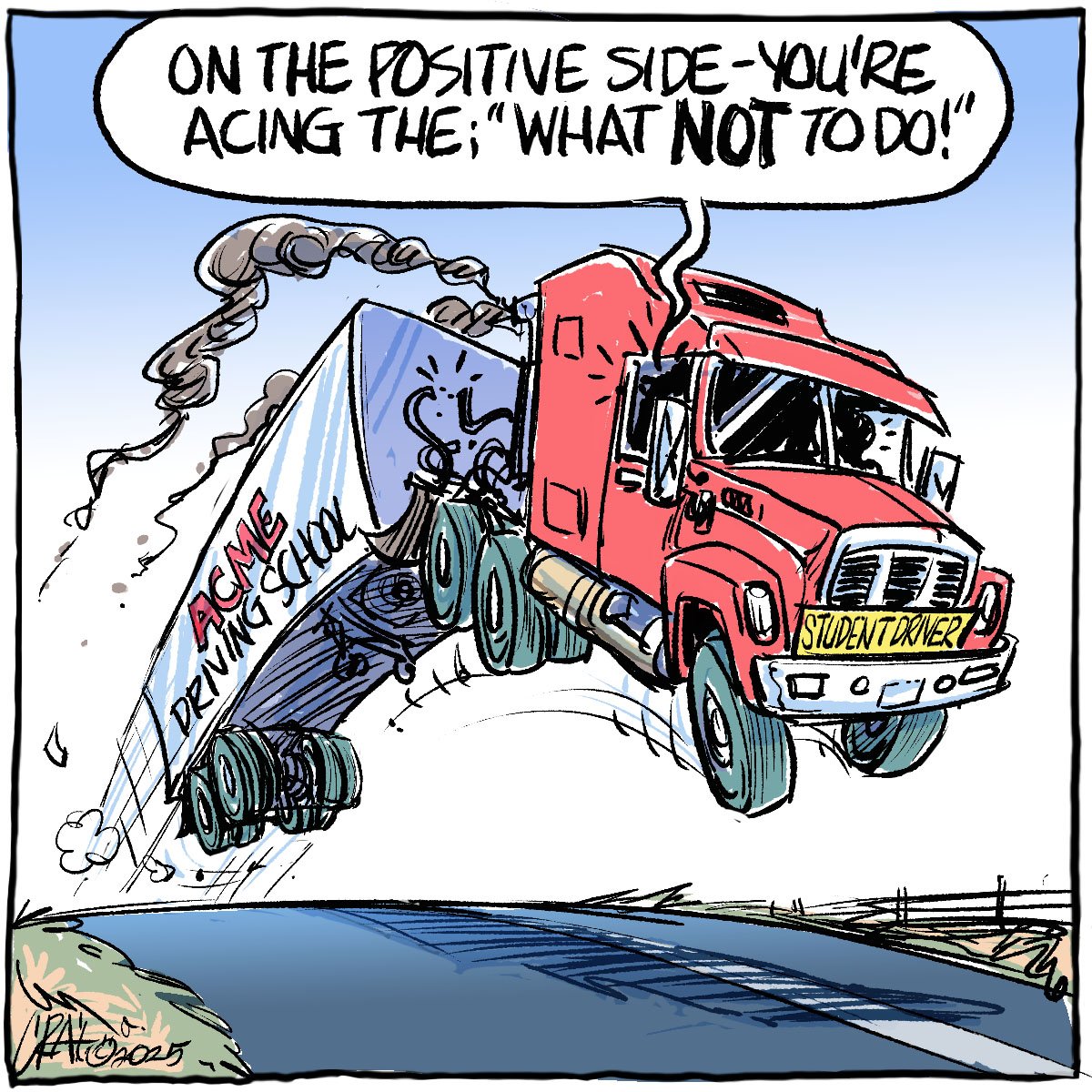IN WESTERN Canada, it is widely assumed that the urban-dominated Liberals have nothing to lose in rural Canada because they hold just one seat in those big swaths of land between the cities west of the Ontario-Manitoba border.
But in fact, the Liberals have much to lose in rural Canada in the next election with the polls and seat numbers as close as they are.
In Atlantic Canada, northern Ontario and the real North, Liberals hold at least 15 rural or significantly rural seats, a total that could be decisive in a close election. In some cases, rural issues can influence largely urban seats if the community is a rural service centre or is influenced by the country folk around it.
Read Also

Efforts to improve trucking safety must be applauded
The tragedy of the Humboldt Broncos bus crash prompted calls for renewed efforts to improve safety in the trucking industry, including national mandatory standards.
So if a recent meeting in Moncton, N.B., between three Liberal MPs and Canadian farm leaders affiliated with the Canadian Federation of Agriculture was any indication, all those rural-influenced seats could be at play in the election that Liberals are now threatening to force this autumn.
A key issue is the proposal from Liberal leader Stéphane Dion and his policy brain trust to promise (threaten?) a carbon tax that would raise more than $15 billion by year four of its implementation, with all the money (they say) being returned to Canadians in environmental investment and tax cuts for low and middle income earners.
Oh, and did we mention there would be a $150 tax credit for rural tax filers in recognition of the fact that they will be hit harder because they work in more carbon-dependent resource sectors or are more dependent on carbon-consuming driving in areas where distances are great and public transit options nonexistent?
Needless to say, that message to a room full of farmers who spend hundreds of thousands of dollars on carbon-based products like fuel and fertilizer each year was not exactly a good election pitch. A $150 credit would fill one tank.
For the farm leaders around the CFA table, the proposal conjured the image of a giant sucking sound taking billions of dollars out of rural Canada to be distributed to mainly urban residents who, given the choice, would spend 10 cents less to buy imported food if that was an option.
The carbon tax is not a vote-attracter in rural Canada for Liberal candidates.
CFA board members called it ill conceived, ill timed, wrongheaded and politically suicidal.
Those are the polite terms.
To their absolute credit, the Liberal MPs faced the music, heard the criticism, took the licking and kept on ticking. They said they were there to listen and to find out how to improve the proposal to make it less onerous for farmers.
Toronto-area MP and Liberal finance critic John McCallum had the good humour at the end of the brutal session to thank the farmers for their “subtle and nuanced” comments.
The Liberals surely won political points for their courage in trying to sell a tough policy choice directly, even though their audience would be among the most hurt.
But they also heard from farm leaders that there is nothing in the Liberal carbon tax policy that is appealing to farmers or offers a guaranteed reward for existing good environmental practices.
In rural Canada, the Liberals have a steep hill to climb, but they hardly can afford to concede scores of rural seats to their opponents before the race even begins.














